Why Is My Newborn Laughing in Their Sleep?
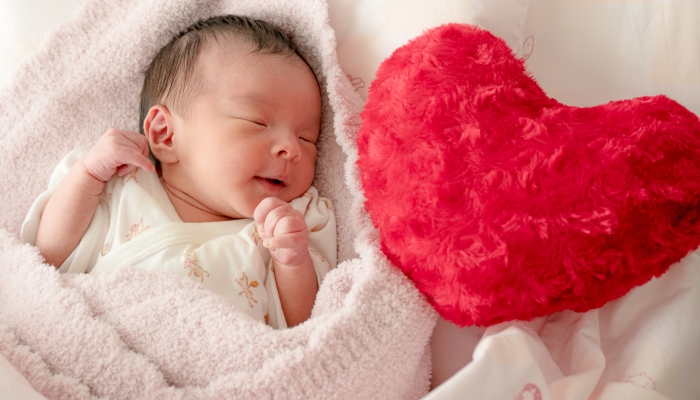
- Most babies experience sleep cycles while asleep.
- Babies smile and laugh as a normal part of active sleep.
- There are many reasons babies smile or laugh in their sleep.
In my experience as a professional nurse, I’ve spent a fair amount of time watching babies sleep. I’m accustomed to seeing facial muscles relax and blood pressure measurements lower as a baby is falling asleep.
I sometimes wondered, do babies experience rapid eye movement (REM) sleep? If so, what do they do during this sleep stage?
To better understand the sleep physiology of babies, I started reading about the science of sleep in infants. There, I learned that occasionally, babies laugh in their sleep!
Interesting, I thought. I’ve seen babies smile in their sleep, but I’ve never heard of a baby laughing in their sleep.
My quest to discover why newborns laugh in their sleep had begun.
As it turns out, there are many reasons babies laugh in their sleep—and the answers might surprise you!
Newborn Sleep Cycles
First, let’s briefly review a baby’s sleep physiology to help understand what’s happening under those closed eyelids.
According to the Sleep Foundation, babies cycle through three stages of sleep, which change in length as your baby grows.
Active Sleep
REM sleep occurs in this stage. Brain activity is busy, which can result in sudden movements of a baby’s arms or legs.
Babies may appear half asleep or make noises, like laughter.
REM is where dreams and nightmares occur in adult sleep, as well as for older infants and children.
Light Sleep
The brain is less active in this stage. Body movements occur less often, while breathing slows and becomes more regular.
Quiet Sleep
Also known as non-rapid eye movement (non-REM) sleep, brain waves are quieter in this stage. Body and eye movements halt and the baby experiences deeper sleep.
Highly respected health organizations, such as the Children’s Hospital of Philadelphia, report that babies may wake as they transition between active (REM) and deep sleep and will cycle regularly through these stages each time they sleep.
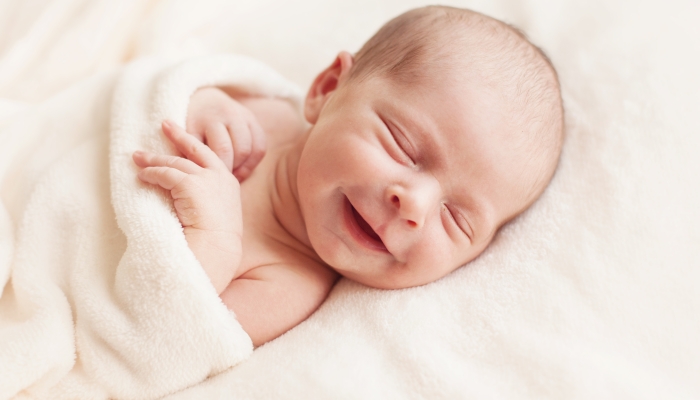
Newborns Laughing in Active Sleep
While it’s true that both adults and babies spend time in active sleep each sleep cycle, there are some significant differences too.
| REM Sleep Feature | Adult | Baby |
| REM sleep cycle length | 10-60 minutes, occurs roughly twice each night | About 50% of total time asleep |
| Physical movement | Restricted due to sleep paralysis | Occurs often, normal |
| Laughing or smiling | Normal, likely related to dreams | Normal, not likely related to dreams |
| Dreaming | Regular occurrence | Not thought to occur |
You can expect many opportunities to hear your baby laugh during the night. A baby’s sleep cycle tends to last about an hour and your little one will move through REM and non-REM sleep each time.
Newborn Laughing in Their Sleep: Is This Normal?
When a baby laughs during their sleep, it’s generally considered a normal occurrence. During REM sleep, an infant may make several involuntary movements or sounds.
While many parents may wonder if laughing during sleep signals a sleep disorder, this symptom, in and of itself, is generally not a cause for concern.
What Does a Newborn Laughing While Sleeping Look Like?
While you may expect to hear a giggle or chortle, generally speaking, a newborn who is laughing in their sleep may sound quite different.
According to Dr. Caspar Addyman, a noted baby psychologist from England, a newborn baby is unlikely to give a full laugh because their lungs aren’t yet fully equipped to make the sound.
However, you may notice your little one making some or all of these sounds while traveling through their sleep cycles:
These and other noises are considered a normal part of rapid eye movement sleep when a baby’s brain waves are more active.
How Common is it for Newborns to Laugh While Sleeping?
Since newborns haven’t yet developed the capacity to make a laughing sound while sleeping, at what age does laughter during sleep typically occur?
In 2017, developmental psychologist Dr. Gina Mireault reported in Scientific American Mind that babies develop the ability to laugh at around 14 to 18 weeks of age. At this young age, a baby’s laughter tends to be an involuntary action and likely does not reflect positive emotions, especially while asleep.
As a baby grows, their ability to produce laughter while sleeping also develops.
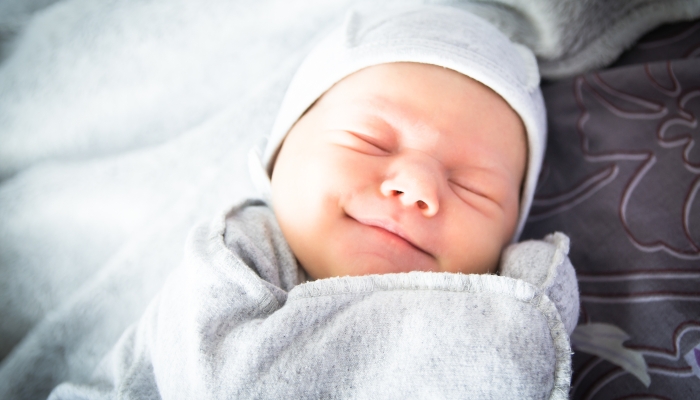
Do Newborns Laugh in Their Sleep Because They’re Happy?
It’s a pleasant thought to imagine that babies laugh in their sleep because they’re experiencing something happy or funny. However, your new baby is more likely to smile first during sleep, simply because their bodies aren’t ready to laugh yet.
Spontaneous smiles are thought to be the beginnings of more complex positive behaviors like laughing.
Interestingly, there are many reasons you may see a baby smiling while asleep.
Practicing Social Skills
A baby’s brain processes human interactions and daily events while they sleep.
In 2019, researchers published a study in Developmental Cognitive Neuroscience that demonstrates babies show a preference for the human voice from a very early age, Further, the study describes a notable change in brain reactivity in response to social sounds (i.e. laughter) that hold increased social value.
In short, when adults spend time talking and laughing with their infants, the baby processes that emotional information while they sleep, which in turn leads to the development and practice of social skills.
Gas Smiles
When a baby smiles because of gas, it might just make you smile too. It’s an unexpected move; babies also often squirm or make funny faces.
A gas smile is thought to be more of a reflexive smile or response to something happening in the baby’s body.
Because gas smiles tend to be spontaneous and unrelated to whatever else is happening, a baby’s smile in this situation is less likely to be a way to communicate positive emotions.
What to Do if Your Newborn Is Laughing in Their Sleep
Generally speaking, a baby who smiles or laughs while asleep is considered normal.
If you happen to wake to the sound of your baby laughing, it’s a good idea to take a quick peek and make sure that all is well. Note any unusual sounds or movements, then return to your own bed for some much-needed rest.
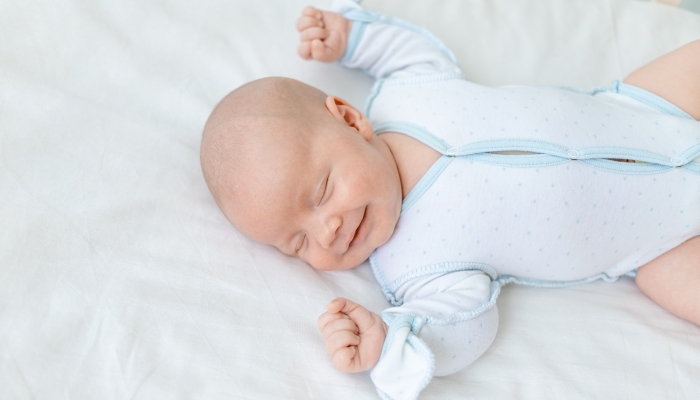
When to Talk to a Doctor If Your Newborn Seems to Laugh While Sleeping
Rarely, a baby laughing in their sleep can be a sign of sleep disorders or neurologic conditions.
If you notice that your baby makes abnormal movements, shows abnormal behavior, or you have other concerns, contact your healthcare provider to rule out:
- Nightmares or night terrors.
- REM sleep behavior disorder. This condition results in the person with the disorder acting out their dreams physically, often with shouting or cries.
- Gelastic and dacrystic seizures. According to the Epilepsy Foundation, these seizures may begin in infancy. Gelastic seizures may occur as the baby is falling asleep or half awake, while dacrystic seizures are marked by uncontrollable laughing or crying that doesn’t match the situation.
Evaluation by a qualified sleep specialist is necessary in order to accurately diagnose the presence of baby sleep disorders.
FAQs
At what age do newborns start to have reactive smiles?
For most babies, social smiles (a smile given in response to something another person is doing) begin around the age of six to eight weeks.
Babies learn emotions and social skills from the people around them. Engage in some developmental play with your baby and watch that reactive smile blossom!
When do babies start dreaming?
Up to date research is widely varied on when (and if) babies dream. Some sources state that infants are able to dream from the earliest days; others report that children begin to experience vivid dreams around the age of two.
According to psychologist Dr. David Foulkes in 2002, in his noted book Children’s Dreaming and the Development of Consciousness, children tend to be around the age of seven when their dreams occur in ways that others would also classify as dreams. “If babies dream,” notes Dr. Foulkes, “it is certainly very different from our dreaming.”
One fact is certain—a baby’s brain is busy building connections while their body is at rest. If you happen to catch your baby laughing in their sleep, rest assured that, likely, all is well.
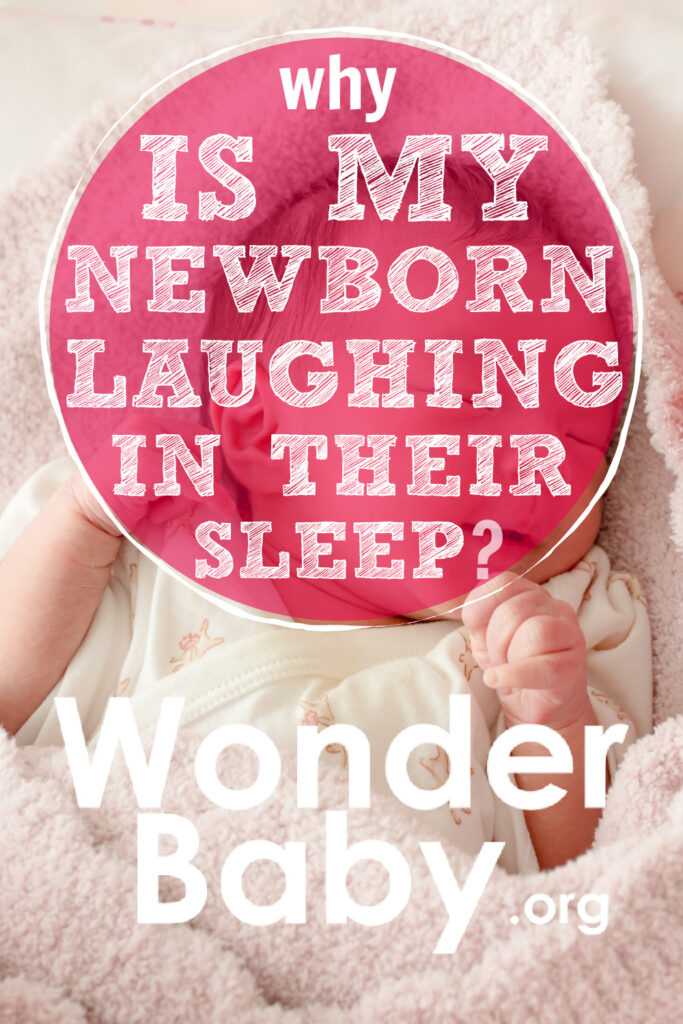
The information WonderBaby provides is not intended to be, and does not constitute, medical or other health advice or diagnosis and should not be used as such. Always consult with a qualified medical professional about your specific circumstances.
Related Posts
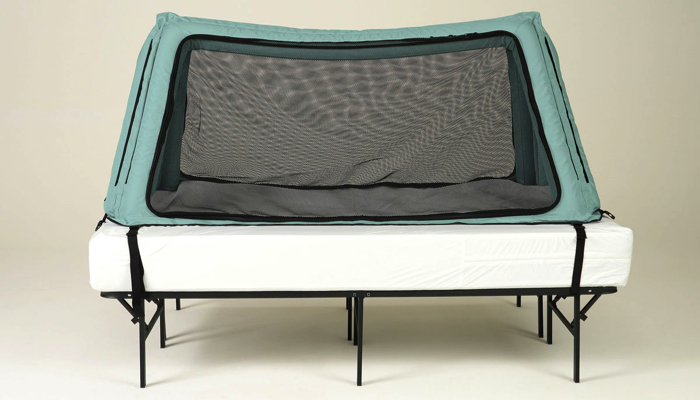
Sleep, Special Needs
Safe Place Bedding Travel Bed Review
Traveling with a special needs child can be stressful! Having a safe, durable, and easy to use travel bed can make traveling so much easier!
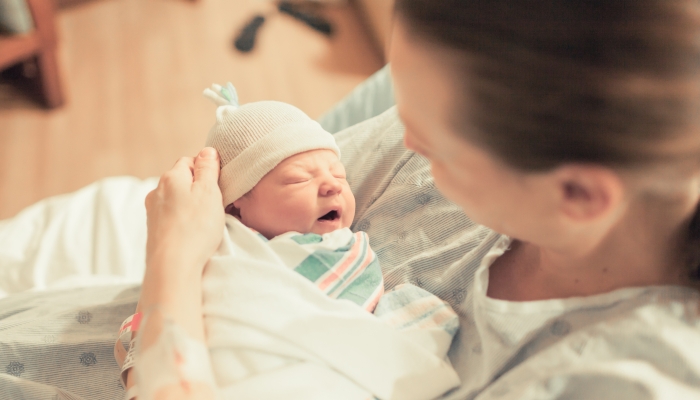
Sleep, Special Needs
Sleep Regimen for Premature Babies: Special Considerations
It can take premature babies much longer than their full-term peers to sleep for long stretches. A preemie sleep schedule may encourage better sleep.
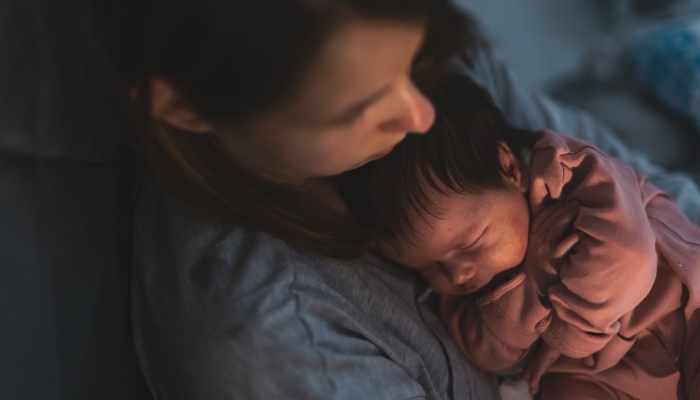
Sleep
Mastering the Bedtime Routine: 3 Tips for a Peaceful Night’s Sleep
From around six weeks, a newborn bedtime routine can help your baby learn the difference between day and night and prepare for a restful night’s sleep.